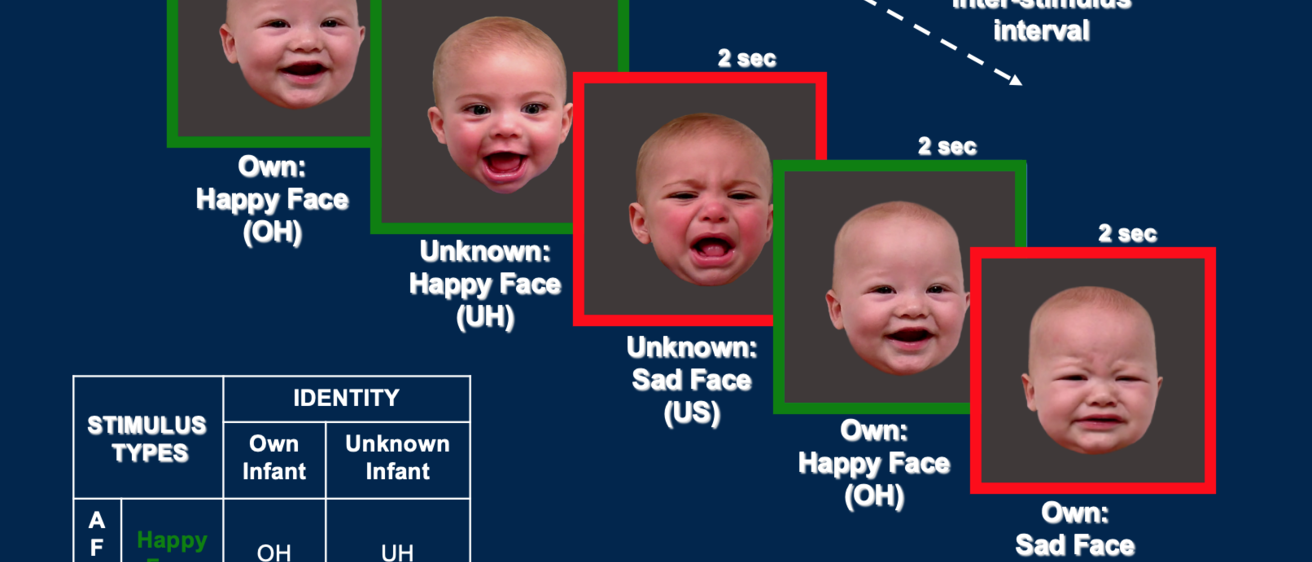Overview
Maternal drug addiction constitutes a major public health problem for both women and affected children, with long lasting consequences on children’s social, emotional and cognitive development. Current treatment strategies tend to focus on the mother and her current addiction, rather than her relationship with her child, and developmental processes that may perpetuate the addiction problems, such as unresolved childhood trauma, neglect, and chronic stress. Unlike mothers who find engaging with their own infant to be a uniquely rewarding experience, mothers with addictions may be less able to respond appropriately to their infant’s cues.
Methods
This study is a randomized, double-blinded, placebo controlled, crossover study of intranasal oxytocin on maternal brain responses. A group of mothers from the University of Iowa and the Yale Child Study Center were enrolled, along with their 2 to 12-month-old infants, and they participated in four study visits over a two-month period. Mothers provided answers to questionnaires, a clinical interview, and participated in brain imaging (fMRI).
Projections
Our prior study identified dopamine- and oxytocin-related brain pathways that showed a diminished response when mothers with addiction viewed the faces of their own vs. unknown infants, compared with mothers without addiction. We expect that intranasal oxytocin may serve as an effective intervention to boost quality of parent-child relationships and attachment security in mother-infant dyads.
What will this help with?
This knowledge will contribute significantly to our long-term goal of discovering novel treatment strategies for mothers who suffer from drug dependency and addiction. We hope this work will contribute to the development of pharmacological interventions that may boost mother-child relationships and improve outcomes for mothers and their infants.
